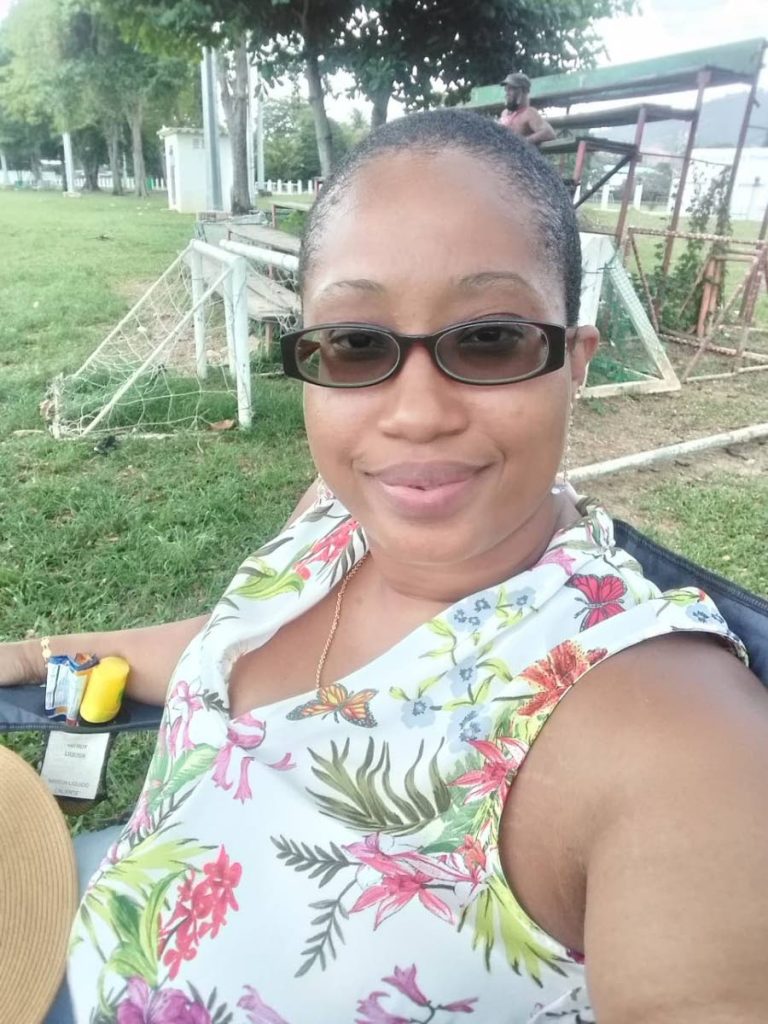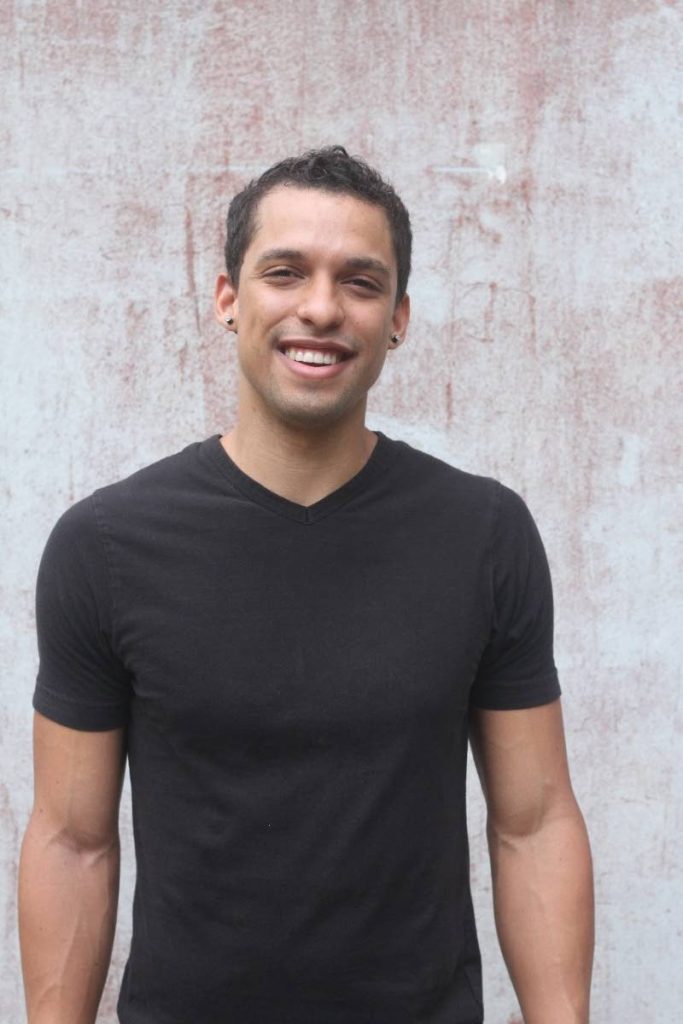Recovered covid patient: I don't wish this on my worst enemy

Covid19 has taken several family and friends away from Gemmi Butcher over the past 15 months. So when she contracted the virus earlier this month, she thought she was going to die.
At first she did not suspect she had covid19, because her sinuses had been giving her trouble because of the Sahara dust in the atmosphere. But on May 7 she woke up with diarrhoea, a fever, and severe pain in her nasal passage.
She spoke to her father, who advised her to get tested, so she went to a health centre.
“It was one of the most painful things I’ve ever felt in my life – this long probe going deep into your nostril. It’s really an intense, burning sensation. It burned like pepper sauce.
“The doctor there told me they were very overwhelmed, so they would only call me if I was positive. But I got instructions to quarantine for 14 days.”
That Sunday she got a call confirming she was positive. She called her manager to explain the situation and everyone in her department at work had to be quarantined and tested.
Butcher, 40, told Sunday Newsday when she got the news she was so afraid that she cried. She had been watching the news, had heard the “horror stories,” and knew someone younger than her who died recently.
After almost a week of fever, on May 13, her temperature spiked and she was short of breath. An ambulance was called and the emergency medical technicians stayed in her yard, monitoring her vital signs and liaising with a hospital for about an hour.
“Eventually they got the okay to carry me to Caura Hospital. While heading up, all sorts of thoughts were coming to my mind. Am I going to die? What’s going to happen to me? What’s going to happen to my family?
"I was scared for my life. All I could have done was to give it over to God. I cried, and I cried out to Jesus, ‘This is out of my control. Please fight for me. Please fight to keep me alive. Because I was really frightened. I felt like I was dying.”
When Butcher arrived that night she was put in a bed. The nurses took her vital signs, asked her questions, and gave her something to eat. She said she was not given oxygen, but was encouraged her to breathe on her own as much as possible.
During her three-day stay she was given a barrage of tablets including antibiotics and painkillers. Butcher recalled lying in bed, surrounded by people moaning and crying out in pain, Her oxygen levels dropped several times.
She said the doctors wanted to discharge her and send her to a step-down facility the day after she arrived, but there was no transport, so she remained there until May 17 when a family member picked her up.
Just before Butcher left, a woman on her ward died. She could only bury her face in a pillow while another patient went to the bathroom to hide, because they did not want to see when the funeral home staff came for the body. It reminded them how easily it could have been them being taken away.
Butcher had nothing but praise and gratitude for the doctors, nurses, cleaners and other staff at the hospital, and described them as wonderful and dedicated.
“Nurse Mohammed, Persad, Blossom, Campbell and others – these are hardworking women. They were taking care of all of us at ward 8. They are short-staffed but they are hardworking and professional. They helped a lot of us – old, young, people with dementia, people who were blind – everybody.
"They need an award for the job they are doing, and I want to tell them thank you, thank you so much, because without them I don’t know how we would have survived.”
Butcher still has a cough, is short of breath and is constantly fatigued, but a doctor calls to check on her. She is still on antibiotics, as well as an inhaler to help with her breathing.
For her, it is relatively easy to quarantine at home, since she lives alone. Her father drops off food, water and cleaning supplies.
But she has to sanitise her home and look after herself, which is difficult since she is still unwell. She has to take things slowly and take breaks. When she is tired of lying in bed, she goes to sit in the gallery for some fresh air.
Butcher believes God heard her prayers, fought for her and continues to fight for her. She is also thankful to all who prayed for her and sent their love and support.
“You don’t know how ecstatic I am. I have a new lease on life. I want to help anyone I can to understand there is hope after covid. There is nothing in life that God can’t make a way for you.’
She begged the public to pay attention to the Prime Minister and health professionals and co-operate with them.
“It is frightening. I don’t wish this on my worst enemy. No human being supposed to go through this. This virus shouldn’t even exist, but it does.
"And then there are people out there saying this isn’t real? They are delusional. They are not in touch with reality. They need to wake up and realise this is real and it could kill them. They drinking and partying as if they don’t value their lives!”
'First dose of vaccine didn't protect me'
For Zico Cozier, 30, his experience was less physically taxing. His symptoms started on May 5 with a headache and fatigue.
He did not think much of it because, a few months previously, he had been very ill, with worse symptoms, and it was not covid19. Also, two weeks previously he had got his first shot of the AstraZeneca vaccine, so he assumed it was improbable he would catch the virus.
But out of an abundance of caution, he decided not to go to work.
By that Friday he still had the symptoms – in fact, they were worse, with the addition of nausea, sore throat, and a stomachache. He felt better by Monday, but went for a rapid test at a private facility so he could go back to the office.
“It was a total surprise when they told me I was positive. Immediately it was no longer about going back to work. Now I was concerned about my family, because not all of them got vaccinated.”

He said most of his co-workers were already working from home, so no one there was at risk, and he had only been in contact with five other people outside his household. Those five people were not sick, and he said he was as careful as possible, so he has no idea where he could have picked up the virus.
When he got his positive result, he was given a slip of paper with the covid19 hotline numbers, but no further instructions. He spent hours trying to get through but could not ,so he contacted his doctor, who advised him to go through the public system and get a PCR test.
He was reluctant but went to a testing site the next day. He was in the waiting room of the public facility for three hours, and even though everyone was wearing masks and social distancing, he felt uncomfortable being covid19-positive and being around other people.
On hearing the news, two of his siblings were tested. His sister did a PCR test and is negative, so she went to stay by a friend. His younger brother, however, has covid19 but is asymptomatic.
A week later, he got a call confirming he was positive and telling him the whole household had to quarantine.
“When the doctor from the public health system called, he explained he could put the entire household under quarantine, based on my and my brother’s results, and the fact that my parents have symptoms. "Also, the doctor said private facilities passed along the rapid test results to the ministry and I gave them my parents’ information, so if anything bad were to happen, there would be procedures in place to care for them.
“I feel as if the vaccine has saved the lives of my parents. Because of their age, they are high-risk, but they barely have any symptoms. They were terrified of getting covid, especially since my dad has health issues, but thank goodness they did not fear the vaccine."
Cozier is grateful that his parents had just been vaccinated.
"I wouldn’t want to think about what would have happened if they had not gotten vaccinated two weeks before.”
He still has mild symptoms, including headaches, stomachaches, and exhaustion, but he is able to function and work for a little while every day.
He said he appreciated that the doctor took the time to answer all his questions patiently. The doctor was polite and thorough, and he felt cared for.
“It’s time for people to come together and support our health care workers. Obviously, they won’t always get things right, because this is a situation that is unlike anything TT, the entire world, has ever experienced before.
"People criticise, but I don’t think they realise there isn’t a rulebook. There isn’t a template in place that has been tried and tested. We have to be understanding and do better.”


Comments
"Recovered covid patient: I don’t wish this on my worst enemy"